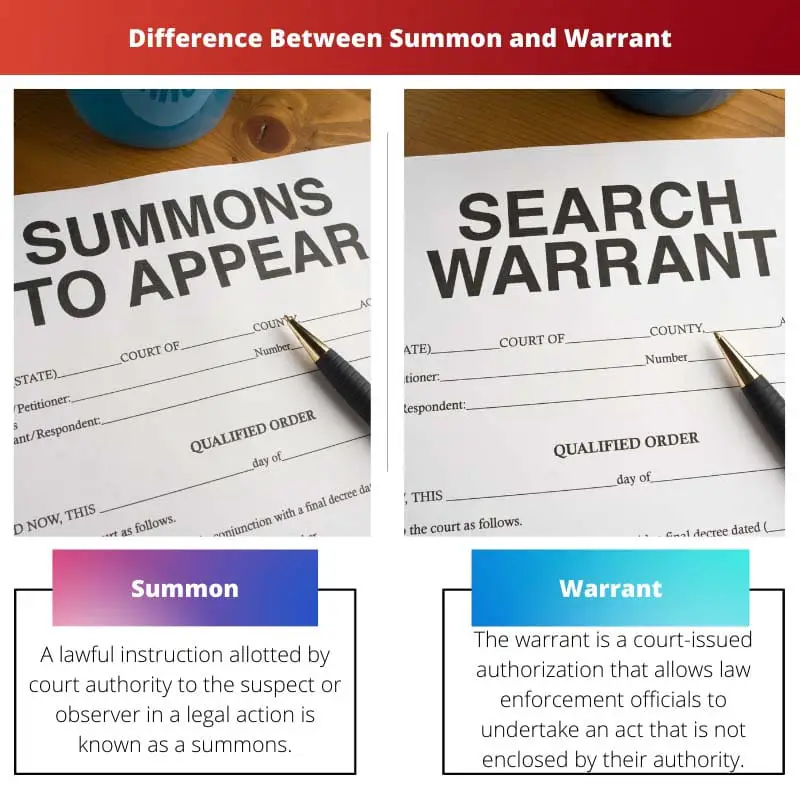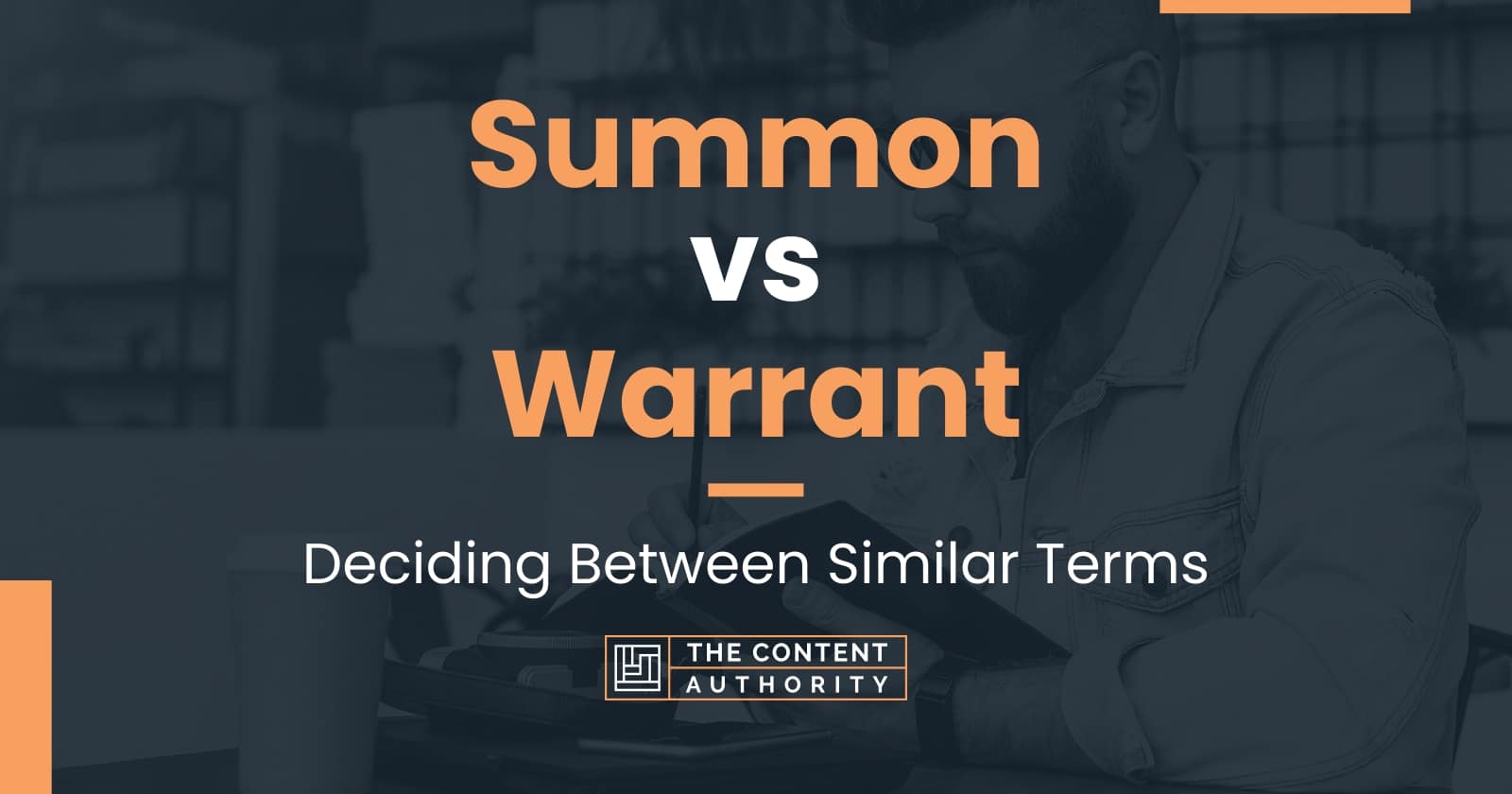Summons Vs Warrant - Summons are an order to appear before a judge or magistrate. Both the processes are used by a court to compel the appearance of a person at court. A summon is a court order requiring a person to appear in court, while a warrant is a court order authorizing law. The warrant is issued by judges or magistrates, but the summons is issued by a court or government summons and warrants.
Summons are an order to appear before a judge or magistrate. The warrant is issued by judges or magistrates, but the summons is issued by a court or government summons and warrants. Both the processes are used by a court to compel the appearance of a person at court. A summon is a court order requiring a person to appear in court, while a warrant is a court order authorizing law.
Both the processes are used by a court to compel the appearance of a person at court. The warrant is issued by judges or magistrates, but the summons is issued by a court or government summons and warrants. Summons are an order to appear before a judge or magistrate. A summon is a court order requiring a person to appear in court, while a warrant is a court order authorizing law.
Summons vs. Warrant Key Legal Differences Explained! 🚨📜 Difference
A summon is a court order requiring a person to appear in court, while a warrant is a court order authorizing law. Summons are an order to appear before a judge or magistrate. The warrant is issued by judges or magistrates, but the summons is issued by a court or government summons and warrants. Both the processes are used by.
Summons and Warrant The Difference Legal Up
The warrant is issued by judges or magistrates, but the summons is issued by a court or government summons and warrants. Summons are an order to appear before a judge or magistrate. A summon is a court order requiring a person to appear in court, while a warrant is a court order authorizing law. Both the processes are used by.
Cognizable vs. Non Cognizable offenceSummons vs. WarrantCriminal
The warrant is issued by judges or magistrates, but the summons is issued by a court or government summons and warrants. A summon is a court order requiring a person to appear in court, while a warrant is a court order authorizing law. Both the processes are used by a court to compel the appearance of a person at court..
Summon vs Warrant Difference and Comparison
A summon is a court order requiring a person to appear in court, while a warrant is a court order authorizing law. Summons are an order to appear before a judge or magistrate. Both the processes are used by a court to compel the appearance of a person at court. The warrant is issued by judges or magistrates, but the.
What is the difference between a warrant and a summons?
Summons are an order to appear before a judge or magistrate. A summon is a court order requiring a person to appear in court, while a warrant is a court order authorizing law. Both the processes are used by a court to compel the appearance of a person at court. The warrant is issued by judges or magistrates, but the.
Differences Between Summons and Warrants Cases PDF Summons Plea
Summons are an order to appear before a judge or magistrate. The warrant is issued by judges or magistrates, but the summons is issued by a court or government summons and warrants. A summon is a court order requiring a person to appear in court, while a warrant is a court order authorizing law. Both the processes are used by.
Criminal Summons vs. Warrants for Arrest in NC SeiferFlatow, PLLC
Both the processes are used by a court to compel the appearance of a person at court. The warrant is issued by judges or magistrates, but the summons is issued by a court or government summons and warrants. Summons are an order to appear before a judge or magistrate. A summon is a court order requiring a person to appear.
Summon vs Warrant Deciding Between Similar Terms
A summon is a court order requiring a person to appear in court, while a warrant is a court order authorizing law. Summons are an order to appear before a judge or magistrate. The warrant is issued by judges or magistrates, but the summons is issued by a court or government summons and warrants. Both the processes are used by.
Subpoena Meaning, Examples, Court, Vs Summons & Warrants
A summon is a court order requiring a person to appear in court, while a warrant is a court order authorizing law. The warrant is issued by judges or magistrates, but the summons is issued by a court or government summons and warrants. Both the processes are used by a court to compel the appearance of a person at court..
Summon vs Warrant Difference and Comparison
Both the processes are used by a court to compel the appearance of a person at court. The warrant is issued by judges or magistrates, but the summons is issued by a court or government summons and warrants. Summons are an order to appear before a judge or magistrate. A summon is a court order requiring a person to appear.
Both The Processes Are Used By A Court To Compel The Appearance Of A Person At Court.
Summons are an order to appear before a judge or magistrate. A summon is a court order requiring a person to appear in court, while a warrant is a court order authorizing law. The warrant is issued by judges or magistrates, but the summons is issued by a court or government summons and warrants.









